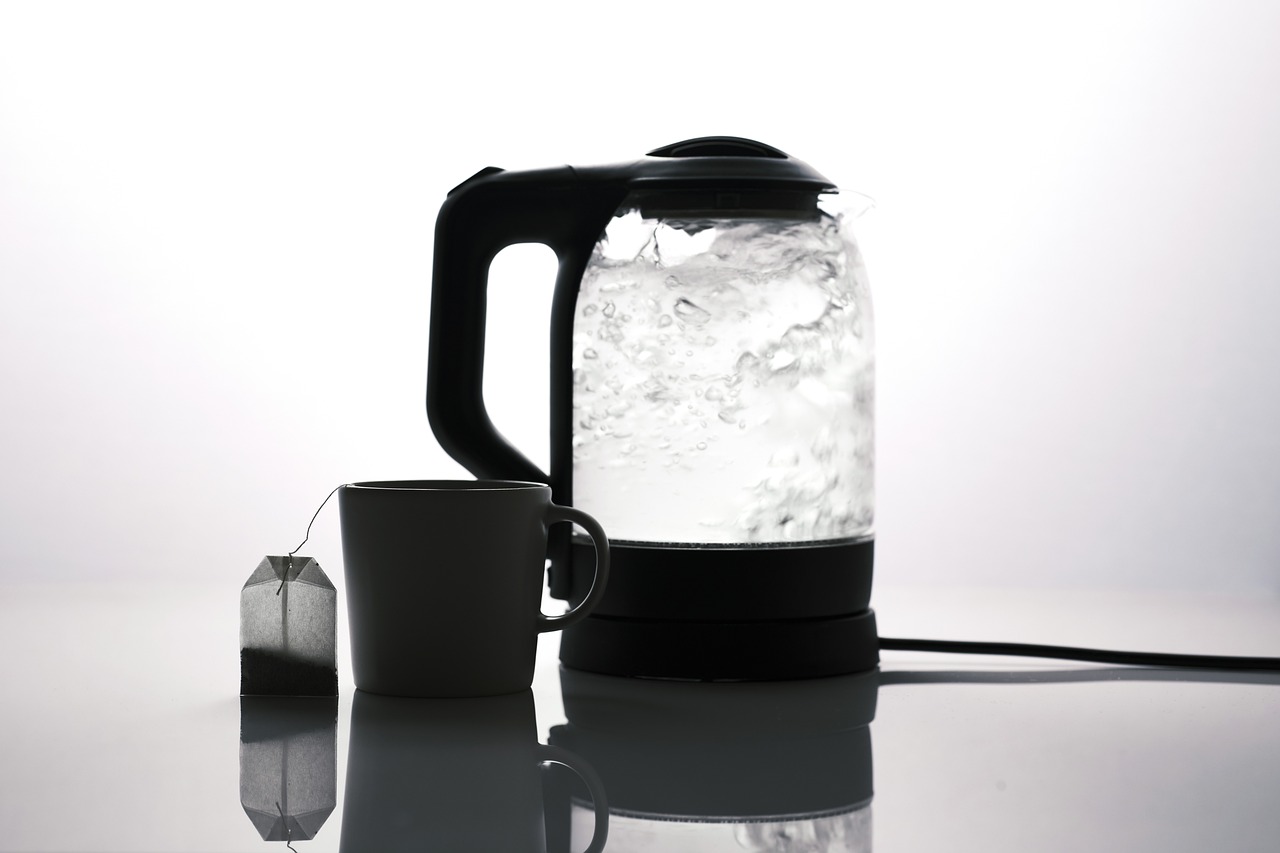This comprehensive guide explores the fundamentals of water fasting, including its benefits, risks, and practical tips for beginners looking to embark on this health journey.
What is Water Fasting?
Water fasting is a method of abstaining from all food and caloric beverages, consuming only water for a specified period. This practice has been utilized for centuries, often for spiritual or health reasons. The primary goal is to allow the body to detoxify and reset itself, promoting various health benefits.
Benefits of Water Fasting
Many individuals are drawn to water fasting due to its numerous potential advantages. Here are some key benefits:
- Weight Loss: Water fasting can lead to significant weight reduction as the body utilizes stored fat for energy.
- Improved Metabolism: Fasting can enhance metabolic processes, helping the body to burn fat more efficiently.
- Cellular Repair: During fasting, the body initiates autophagy, a process that removes damaged cells and regenerates new ones.
Health Benefits Beyond Weight Loss
In addition to weight loss, water fasting can improve mental clarity, enhance immune function, and reduce inflammation. Many people report feeling more focused and alert during and after a fast, attributing this to the body’s shift from glucose to fat as its primary energy source.
Risks and Considerations of Water Fasting
While water fasting has many benefits, it’s essential to be aware of the potential risks. Beginners may experience side effects such as:
- Fatigue: A common issue, especially in the early stages of fasting.
- Dizziness: This can occur due to low blood sugar levels.
- Electrolyte Imbalances: Prolonged fasting can lead to imbalances, which may be dangerous.
Who Should Avoid Water Fasting?
Certain individuals should refrain from water fasting, including those with specific health conditions such as diabetes, eating disorders, or pregnant individuals. Always consult a healthcare professional before beginning any fasting regimen.
Preparing for Your Water Fast
Preparation is crucial for a successful water fast. Here are some practical tips:
- Choosing the Right Duration: Beginners may start with shorter fasts, gradually increasing duration as they become more comfortable.
- Hydration and Electrolyte Balance: Ensure adequate water intake and consider electrolyte supplements to maintain balance.
Breaking Your Water Fast Safely
How you break a fast is just as important as the fast itself. To safely reintroduce food:
- Start with Gentle Foods: Opt for easily digestible foods like broths, fruits, and cooked vegetables.
- Listen to Your Body: Pay attention to how you feel and adjust your food intake accordingly.
Signs of a Successful Fast
Recognizing the signs of a successful fast can enhance future experiences. Indicators that suggest the fast was effective include improved energy levels, better digestion, and a sense of mental clarity.
In summary, water fasting can be a beneficial practice for many, provided it is approached with caution and proper knowledge. By understanding its fundamentals, benefits, and risks, beginners can embark on this health journey with confidence.

What is Water Fasting?
Water fasting is a practice that involves abstaining from all food and caloric beverages, allowing only the consumption of water over a designated period. This method of fasting has gained popularity for its potential health benefits and spiritual significance. Understanding the concept and purpose behind water fasting is essential for anyone considering this journey.
The primary aim of water fasting is to give the body a break from the constant intake of food, allowing it to enter a state of autophagy. This process involves the body breaking down and recycling damaged cells, which can lead to improved cellular function and overall health. During a water fast, the body shifts its energy source from glucose derived from food to stored fat, which can promote weight loss and metabolic changes.
Water fasting is not just about abstaining from food; it also serves various purposes, including:
- Detoxification: By eliminating food intake, the body can focus on detoxifying itself, potentially leading to improved organ function.
- Spiritual Growth: Many cultures and religions incorporate fasting as a means to enhance spiritual awareness and discipline.
- Health Improvement: Research suggests that water fasting may contribute to lower blood pressure, improved cholesterol levels, and enhanced insulin sensitivity.
It is crucial to approach water fasting with caution and preparation. While the practice can offer numerous benefits, it is not suitable for everyone. Individuals with certain medical conditions, such as diabetes or eating disorders, should consult a healthcare professional before attempting a water fast.
In summary, water fasting is a method that involves consuming only water for a specific period, allowing the body to undergo significant metabolic changes. By understanding the concept and purpose of water fasting, individuals can make informed decisions about their health and wellness journey.

Benefits of Water Fasting
Understanding the potential benefits of water fasting can significantly motivate beginners on their health journey. This fasting method, which involves abstaining from all food and caloric beverages while only consuming water, has gained popularity for its numerous advantages. Below, we will explore some of the key benefits, including weight loss, improved metabolism, and cellular repair.
- Weight Loss: One of the primary reasons individuals choose water fasting is for weight loss. By significantly reducing caloric intake, the body begins to utilize stored fat for energy. This process not only leads to weight reduction but also helps in reshaping body composition over time. Many practitioners report a noticeable decrease in body weight after just a few days of fasting.
- Improved Metabolism: Water fasting can trigger metabolic changes that enhance the body’s ability to burn fat. During fasting, the body experiences a shift in hormone levels, including increased norepinephrine, which promotes fat burning. Additionally, fasting can improve insulin sensitivity, allowing the body to utilize glucose more effectively, which is essential for maintaining a healthy metabolism.
- Cellular Repair: Another significant benefit of water fasting is its impact on cellular repair processes. Fasting initiates autophagy, a natural process where the body cleans out damaged cells and regenerates new ones. This process is crucial for maintaining cellular health and can potentially reduce the risk of various diseases.
Moreover, water fasting has been linked to improved mental clarity. Many individuals report enhanced cognitive function and focus during fasting periods. This could be attributed to the body’s shift towards burning ketones for energy, which are known to be a more efficient fuel source for the brain.
In addition to mental benefits, fasting can also lead to improved immune function. Research suggests that intermittent fasting can rejuvenate the immune system, enhancing the body’s ability to fight off infections and diseases. This rejuvenation is especially beneficial for those looking to boost their overall health.
While the benefits of water fasting are compelling, it is essential to approach this practice with caution and proper knowledge. Beginners should consider consulting with healthcare professionals before embarking on a fasting journey, particularly if they have pre-existing health conditions.
In summary, the advantages of water fasting extend beyond just weight loss. With improved metabolism, cellular repair, and enhanced mental clarity, it presents a holistic approach to health and wellness. As you consider this practice, remember to stay informed and prioritize your health and safety.
Weight Loss and Water Fasting
Water fasting has gained popularity as a method for weight loss, attracting many individuals seeking effective ways to shed excess pounds. This approach involves abstaining from all food and caloric beverages, consuming only water for a specified duration. The primary reason many people opt for water fasting is its potential to create a significant caloric deficit, which is crucial for weight loss.
When the body is deprived of food, it begins to utilize stored energy, primarily in the form of fat. This process can lead to rapid weight loss, particularly in the initial days of fasting. During this period, the body shifts its metabolism to burn fat for energy, resulting in a noticeable reduction in body weight. Research indicates that individuals can lose several pounds within the first week of water fasting, depending on their starting weight and the duration of the fast.
Understanding the caloric deficit is essential for grasping how water fasting promotes weight loss. A caloric deficit occurs when the body burns more calories than it consumes. By eliminating food intake, water fasting naturally leads to this deficit, forcing the body to tap into its fat reserves. This not only aids in weight loss but also helps in improving metabolic efficiency over time.
Moreover, the effects of water fasting extend beyond immediate weight loss. As the body adapts to fasting, it undergoes metabolic changes that can enhance fat burning. Hormones such as insulin and glucagon play pivotal roles in regulating energy use. During fasting, insulin levels drop, which facilitates fat breakdown and mobilization for energy, while glucagon levels rise, further promoting fat utilization.
However, it is crucial to approach water fasting with caution. While many individuals experience significant weight loss, it is not without risks. Beginners may encounter side effects such as fatigue, dizziness, and electrolyte imbalances. Therefore, it is advisable to consult with a healthcare professional before embarking on a water fasting journey, especially for those with pre-existing health conditions.
In addition to weight loss, water fasting can offer various health benefits. Many find that fasting improves mental clarity and focus, likely due to the body’s metabolic adaptations. Furthermore, fasting can support cellular repair processes and reduce inflammation, contributing to overall health improvements.
In summary, water fasting can be an effective strategy for weight loss, primarily due to its ability to create a caloric deficit and induce metabolic changes. While the potential benefits are compelling, it is essential for individuals to consider the associated risks and prepare adequately for the experience. By doing so, they can maximize the benefits of water fasting while minimizing potential drawbacks.
Caloric Deficit Explained
A caloric deficit is a fundamental concept in weight loss, referring to the state where the body consumes fewer calories than it expends. This condition is crucial for shedding excess weight, and one effective method to achieve it is through water fasting. In this section, we will explore how water fasting creates a caloric deficit and its profound effects on the body.
During water fasting, individuals abstain from all food and caloric beverages, consuming only water for a specified period. This practice leads to a significant reduction in caloric intake, which is the primary mechanism through which weight loss occurs. When the body is in a state of fasting, it begins to utilize stored energy reserves, primarily in the form of fat, to meet its energy needs.
To understand the physiological changes that occur during a caloric deficit induced by water fasting, it is essential to consider the body’s metabolic response. Initially, the body relies on glycogen stores—carbohydrates stored in the liver and muscles. Once these stores deplete, the body transitions to fat oxidation, breaking down fatty acids for energy. This metabolic shift not only facilitates weight loss but also promotes the release of ketones, which can provide an alternative energy source for the brain.
| Metabolic Changes | Effects on the Body |
|---|---|
| Increased Fat Oxidation | Utilizes stored fat for energy, leading to weight loss. |
| Hormonal Adjustments | Changes in insulin and glucagon levels promote fat burning. |
| Keto-adaptation | Body becomes efficient at using ketones for energy. |
Moreover, water fasting can lead to a reduction in insulin levels. Lower insulin levels enhance fat breakdown and inhibit fat storage, further contributing to the caloric deficit. This hormonal shift can be particularly beneficial for those struggling with insulin resistance or metabolic syndrome.
While the caloric deficit created by water fasting can lead to significant weight loss, it is crucial to approach this method with caution. Prolonged fasting without proper guidance can result in nutrient deficiencies and adverse health effects. Therefore, it is advisable to consult with a healthcare professional before embarking on a water fasting regimen, especially for individuals with underlying health conditions.
In summary, a caloric deficit is essential for weight loss, and water fasting serves as an effective means to achieve this state. By understanding the metabolic changes that occur during fasting, individuals can better appreciate the benefits and potential risks associated with this practice. As you consider water fasting as a weight loss strategy, remember that informed decisions and proper preparation are key to a successful experience.
Metabolic Changes During Fasting
Water fasting is a powerful method that significantly impacts the body’s metabolism. During this period of abstaining from food, the body undergoes profound changes that can enhance fat burning and promote overall health. Understanding these metabolic shifts is essential for anyone considering this fasting approach.
When you enter a state of water fasting, your body initially relies on glycogen stores for energy. Glycogen, which is stored in the liver and muscles, provides a quick source of fuel. However, once these stores are depleted, typically within the first 24 hours, the body shifts its energy source from glycogen to fat. This transition marks the beginning of ketosis, a metabolic state where fat becomes the primary fuel source.
During fasting, several hormonal changes occur that facilitate fat burning. One of the most critical hormones involved is insulin. As food intake ceases, insulin levels drop significantly. Lower insulin levels promote fat breakdown and prevent fat storage, making it easier for the body to access and utilize stored fat for energy. This hormonal shift is a key factor in the weight loss benefits associated with water fasting.
Another significant hormone affected by fasting is glucagon. As insulin levels decrease, glucagon levels rise. This hormone helps to mobilize fat stores, allowing the body to convert fat into energy more efficiently. The increase in glucagon also aids in maintaining blood sugar levels, preventing dips that can lead to feelings of fatigue and weakness.
Additionally, human growth hormone (HGH) levels can increase during fasting. Research indicates that fasting can elevate HGH levels significantly, sometimes by up to five times the normal levels. HGH plays a crucial role in fat metabolism and muscle preservation, making it an essential factor in the metabolic changes that occur during fasting.
Another important aspect of metabolic changes during fasting is the process of autophagy. This cellular repair mechanism is activated when the body is in a fasted state. Autophagy helps to remove damaged cells and regenerate new ones, contributing to improved cellular health and function. This process not only aids in fat loss but also supports overall health and longevity.
Furthermore, fasting has been shown to influence thyroid hormone levels, which are crucial for regulating metabolism. Some studies suggest that short-term fasting can enhance thyroid function, leading to increased metabolic rate and energy expenditure. However, it’s essential to approach fasting carefully, as prolonged fasting can have the opposite effect and may lead to a decrease in thyroid hormones.
In summary, the metabolic changes that occur during water fasting are multifaceted and significant. The shifts in hormone levels, particularly insulin, glucagon, and HGH, play a pivotal role in promoting fat burning and enhancing overall metabolic function. Additionally, processes like autophagy contribute to cellular repair and health. For those considering water fasting, understanding these changes can provide valuable insights into how fasting can be a powerful tool for weight management and health improvement.
Health Benefits Beyond Weight Loss
Water fasting is increasingly recognized for its numerous health benefits that extend far beyond just weight loss. While many embark on this journey to shed pounds, the holistic advantages of water fasting can significantly enhance overall well-being.
One of the most notable benefits of water fasting is the improvement in mental clarity. During fasting, the body undergoes a metabolic shift that promotes the production of ketones, a type of fuel that the brain can utilize efficiently. This shift can lead to heightened focus and cognitive function, allowing individuals to experience clearer thinking and improved concentration. Many who practice water fasting report feeling more alert and mentally sharp, which can be particularly beneficial in today’s fast-paced world.
Another compelling advantage of water fasting is its positive impact on the immune system. Research indicates that fasting can promote autophagy, a natural process where the body cleans out damaged cells and regenerates new ones. This cellular repair mechanism can enhance immune function, making the body more resilient to infections and diseases. Additionally, fasting may help reduce markers of inflammation, which is linked to a variety of chronic health conditions.
Furthermore, water fasting has been associated with reduced inflammation in the body. Chronic inflammation is a silent contributor to many health issues, including heart disease, diabetes, and arthritis. By engaging in water fasting, individuals may notice a decrease in inflammatory markers, leading to improved joint health and overall comfort. This anti-inflammatory effect can also contribute to better skin health, as reduced inflammation may result in fewer breakouts and a more radiant complexion.
In addition to these benefits, water fasting is known to promote metabolic health. The fasting state encourages the body to utilize stored fat for energy, which can lead to improved insulin sensitivity and better blood sugar regulation. This is particularly beneficial for individuals at risk of developing type 2 diabetes, as maintaining stable blood sugar levels is crucial for overall health.
Lastly, many individuals find that water fasting encourages a deeper connection with their bodies. The practice often leads to increased mindfulness about food choices and eating habits. By taking a break from food, individuals can gain insights into their relationship with eating and develop healthier habits moving forward.
In summary, the health benefits of water fasting extend well beyond weight loss. With improvements in mental clarity, immune function, and inflammation reduction, water fasting can be a powerful tool for enhancing overall health and well-being. As with any health practice, it is essential to approach water fasting with caution and consult with a healthcare professional, especially for those with underlying health conditions.

Risks and Considerations of Water Fasting
Water fasting, while popular for its potential health benefits, is not without its risks. Understanding these risks is crucial for anyone considering this fasting method. This section delves into the potential side effects of water fasting and identifies groups of individuals who should approach fasting with caution or avoid it altogether.
Beginners may encounter a variety of side effects during their water fasting journey. Some of the most common issues include:
- Fatigue: As the body adjusts to the absence of food, individuals often report feelings of tiredness and low energy.
- Dizziness: A lack of caloric intake can lead to drops in blood sugar levels, causing dizziness or lightheadedness.
- Headaches: The transition from regular eating to fasting can trigger headaches due to withdrawal from caffeine or changes in hydration levels.
- Electrolyte Imbalance: Extended periods of fasting can disrupt the balance of essential electrolytes, leading to complications such as muscle cramps or heart palpitations.
While many of these side effects are temporary, it is important to listen to your body and consider stopping the fast if severe symptoms arise.
Not everyone is suited for water fasting. Certain individuals should avoid this practice due to potential health risks:
- Pregnant or Nursing Women: Fasting can deprive both the mother and child of essential nutrients.
- Individuals with Eating Disorders: Those with a history of eating disorders may find that fasting exacerbates unhealthy behaviors.
- People with Chronic Health Conditions: Individuals with diabetes, heart disease, or other chronic illnesses should consult a healthcare professional before attempting water fasting.
- Children and Adolescents: Young individuals require consistent nutrition for growth and development, making fasting inappropriate.
It is crucial to consult with a healthcare provider before embarking on a water fast, especially if you belong to one of these groups. A professional can offer personalized advice and help determine if fasting is a safe option for you.
In summary, while water fasting can offer various health benefits, it is essential to be aware of the potential risks and to take necessary precautions. By understanding the side effects and recognizing who should avoid fasting, individuals can make informed decisions that align with their health goals.
Common Side Effects
When embarking on a water fasting journey, especially for beginners, it is essential to be aware of the potential side effects that may arise. While many individuals find water fasting beneficial, it can also lead to a variety of physical and mental challenges. Understanding these side effects can help you prepare and manage them effectively.
- Fatigue: One of the most commonly reported side effects is fatigue. As your body adjusts to a lack of caloric intake, you may feel unusually tired or lethargic. This can be attributed to the body using up its glycogen stores and transitioning to fat burning for energy.
- Dizziness: Another frequent issue is dizziness, which can occur due to low blood sugar levels or dehydration. It is crucial to stay well-hydrated, as even mild dehydration can exacerbate feelings of lightheadedness.
- Electrolyte Imbalances: Prolonged water fasting can lead to imbalances in essential electrolytes such as sodium, potassium, and magnesium. This can result in symptoms like muscle cramps, headaches, and irregular heartbeats. Monitoring your electrolyte levels and considering supplementation may be beneficial.
- Headaches: Many beginners report experiencing headaches during the initial days of fasting. This can be linked to withdrawal from caffeine or sugar, dehydration, or tension due to hunger.
- Digestive Issues: After a period of fasting, you may also encounter digestive discomfort when reintroducing food. It is advisable to start with small, easily digestible meals to avoid overwhelming your system.
- Mood Changes: Emotional fluctuations, including irritability or anxiety, can occur as your body adjusts to fasting. This is often referred to as “hanger” and is a natural response to hunger.
To mitigate these side effects, it is essential to listen to your body and make adjustments as needed. Consider consulting with a healthcare professional before starting a water fast, especially if you have pre-existing health conditions. Additionally, being proactive about hydration and electrolyte management can significantly enhance your fasting experience.
In conclusion, while water fasting can offer various health benefits, it is crucial to be aware of the potential side effects and take steps to minimize them. By preparing adequately and understanding what to expect, beginners can navigate their fasting journey more effectively.
Who Should Avoid Water Fasting?
Water fasting can be a beneficial practice for many, but it is not suitable for everyone. Understanding who should avoid this fasting method is crucial for maintaining health and safety. Certain health conditions and populations may face significant risks when engaging in water fasting. This section outlines these groups to ensure a well-informed approach to fasting.
- Individuals with Eating Disorders: Those who have a history of eating disorders, such as anorexia or bulimia, should avoid water fasting. The restrictive nature of fasting can trigger unhealthy behaviors and exacerbate their condition.
- Pregnant or Breastfeeding Women: Women who are pregnant or breastfeeding have increased nutritional needs. Water fasting can lead to nutrient deficiencies that could affect both the mother and the child.
- People with Chronic Health Conditions: Individuals with chronic illnesses like diabetes, heart disease, or kidney problems should consult a healthcare professional before attempting water fasting. These conditions require careful management that fasting may disrupt.
- Those Taking Certain Medications: Some medications, particularly those that affect blood sugar levels or blood pressure, may require regular food intake to maintain efficacy. Water fasting can interfere with these medications, leading to potential health complications.
- Individuals with a Weak Immune System: People with compromised immune systems, such as those undergoing chemotherapy or living with HIV/AIDS, should avoid fasting. The stress of fasting can further weaken their immune response.
- Children and Adolescents: Young individuals are still growing and developing, and fasting can hinder their nutritional intake. It is advisable for this age group to maintain a balanced diet rather than engage in fasting practices.
- Older Adults: Seniors may have unique health concerns that make fasting risky, including the potential for dehydration or electrolyte imbalances. It is essential for older adults to approach fasting with caution.
In summary, while water fasting can provide various health benefits, it is essential to recognize the populations that should avoid this practice. Consulting with a healthcare provider before starting a water fast is crucial for anyone who falls into these categories. Ensuring safety and health should always be the priority when considering fasting as a lifestyle choice.

Preparing for Your Water Fast
Preparation is essential for a successful water fast. It not only helps you physically but also equips you mentally for the journey ahead. Here are some practical tips to ensure you are well-prepared for your fasting experience.
Mental Preparation
- Set Clear Goals: Before starting your fast, define your objectives. Are you fasting for weight loss, detoxification, or spiritual reasons? Having a clear purpose will keep you motivated.
- Educate Yourself: Understanding the process of water fasting, its benefits, and potential challenges can alleviate anxiety and build confidence.
- Visualize Success: Spend time visualizing how you will feel and what you will achieve during and after the fast. This mental imagery can reinforce your commitment.
Physical Preparation
- Gradual Reduction of Food: In the days leading up to your fast, gradually decrease your food intake. This can help your body adjust to the upcoming changes.
- Stay Hydrated: Begin increasing your water intake several days before the fast. Proper hydration will prepare your body for the fasting period.
- Eliminate Processed Foods: Transition to a whole-food diet that includes fruits, vegetables, and lean proteins. This can ease the transition and reduce cravings during the fast.
Choosing the Right Duration
Deciding how long to fast is crucial. Beginners might start with a 24-hour fast to gauge their body’s response. As you gain experience, you can consider longer durations like 48 or 72 hours. Always listen to your body and consult a healthcare professional if unsure.
Hydration and Electrolyte Balance
Maintaining proper hydration is vital during a water fast. Aim for at least 2-3 liters of water daily. Consider incorporating electrolyte-rich solutions, such as a pinch of salt in your water, to prevent imbalances. This can help you avoid common side effects like dizziness and fatigue.
Support System
Having a support network can significantly enhance your fasting experience. Share your goals with friends or family who can encourage you and hold you accountable. Joining online fasting communities can also provide valuable tips and motivation.
Listen to Your Body
During the fast, pay attention to how your body responds. If you experience severe discomfort, it may be necessary to break your fast early. Always prioritize your health and well-being over strict adherence to fasting goals.
Final Thoughts
Preparation is not just about physical readiness; it involves mental fortitude and a supportive environment. By following these guidelines, you can embark on your water fasting journey with confidence and clarity, maximizing the benefits while minimizing potential risks.
Choosing the Right Duration
Choosing the right duration for your water fast is crucial for achieving your desired results. Different fasting lengths can lead to varying outcomes, and understanding these can help you make an informed decision that aligns with your health goals.
Water fasting can be categorized into several durations, each with its unique benefits and challenges. Here, we will explore the most common fasting durations:
- Short-term Fasting (24-72 hours): This is often the most popular choice among beginners. A 24-hour fast can help your body detox and reset without causing significant discomfort. Extending this to 48 or 72 hours can enhance fat burning and promote cellular repair.
- Intermittent Fasting (16-20 hours daily): This method involves fasting for a portion of the day and eating during a specific window. It is less daunting for beginners and can be easily integrated into daily life. Many people find that an 18-hour fast followed by a 6-hour eating window works well.
- Extended Fasting (4-7 days or longer): This approach is typically recommended for those who have experience with fasting. Extended fasts can lead to more profound health benefits, including enhanced autophagy and significant weight loss. However, they require careful planning and consideration of health status.
When selecting the duration that suits you, consider the following factors:
- Your Health Goals: Are you looking to lose weight, improve metabolic health, or simply detoxify? Different durations may be more effective depending on your specific objectives.
- Your Experience Level: If you are new to fasting, starting with shorter durations can help your body adjust. As you become more comfortable, you can experiment with longer fasts.
- Physical Condition: Always take into account any underlying health conditions. Consulting with a healthcare professional before starting any fasting regimen is advisable.
- Listen to Your Body: Pay attention to how your body responds during the fast. If you experience significant discomfort or adverse effects, it may be a sign to shorten your fasting duration.
It’s important to remember that the effectiveness of fasting is not solely determined by the duration but also by the quality of your refeeding process and your overall lifestyle. Maintaining a balanced diet, staying hydrated, and incorporating gentle exercise can enhance the benefits of your fasting experience.
Ultimately, the right fasting duration is a personal choice that should align with your health goals, lifestyle, and comfort level. Take the time to evaluate your needs and preferences, and you’ll be more likely to achieve success in your water fasting journey.
Hydration and Electrolyte Balance
Maintaining hydration and electrolyte balance during a water fast is essential for overall health and well-being. As the body undergoes significant changes during fasting, understanding how to keep these levels stable can make a substantial difference in your experience.
When you engage in water fasting, your body relies solely on water for hydration, which can lead to a loss of essential electrolytes such as sodium, potassium, magnesium, and calcium. These minerals play a vital role in various bodily functions, including nerve transmission, muscle contraction, and maintaining fluid balance. Thus, it is crucial to monitor and manage these levels throughout your fasting period.
Here are some practical tips to ensure proper hydration and electrolyte balance:
- Drink Plenty of Water: Aim to consume at least 2-3 liters of water daily. This helps to keep your body hydrated and supports detoxification processes.
- Consider Electrolyte Supplements: While fasting, it may be beneficial to use electrolyte supplements that contain sodium, potassium, and magnesium. These can help prevent imbalances and support your body’s functions.
- Monitor Your Symptoms: Pay attention to signs of dehydration or electrolyte imbalance, such as dizziness, fatigue, muscle cramps, or irregular heartbeat. If you experience these symptoms, consider adjusting your water intake or adding electrolytes.
- Use Natural Sources: If you choose to include natural sources of electrolytes, consider adding a pinch of sea salt to your water or consuming herbal teas that may provide some mineral content.
- Stay Mindful of Activity Levels: Reduce strenuous exercise during your fast, as physical exertion can lead to increased fluid and electrolyte loss. Opt for gentle activities like walking or stretching.
It’s also important to understand how your body responds to fasting. During the initial days, you may experience symptoms like headaches or fatigue, which can often be attributed to dehydration or electrolyte depletion. These effects are usually temporary and can be mitigated by following the tips mentioned above.
Incorporating these strategies into your fasting routine can help you maintain a balanced state, making your fasting experience more comfortable and effective. Remember, every individual’s body is different, so it’s essential to listen to your own needs and adjust your approach accordingly.
By prioritizing hydration and electrolyte balance, you can enhance your overall fasting experience, allowing you to reap the many benefits of water fasting while minimizing potential side effects.

Breaking Your Water Fast Safely
is a crucial aspect that can significantly impact your overall experience and health outcomes. After a period of abstaining from food, the way you reintroduce it into your system is just as important as the fast itself. This section will guide you through effective and safe methods to break your fast, ensuring your body can adjust smoothly.
When you complete a water fast, your digestive system has been inactive for an extended period. This means that your body needs to be gradually reintroduced to food to avoid any potential discomfort or adverse reactions. Here are some key strategies to consider:
- Start with Liquids: Begin by consuming clear broths, herbal teas, or diluted fruit juices. These options are gentle on the stomach and help to rehydrate your body.
- Introduce Soft Foods: After a day or two of liquids, you can start incorporating soft foods. Foods like mashed bananas, cooked squash, or applesauce are ideal as they are easy to digest.
- Progress to Solid Foods: Once your body has adjusted to soft foods, gradually introduce more solid options. Focus on whole, unprocessed foods such as steamed vegetables, lean proteins, and whole grains.
- Eat Small Portions: It’s essential to eat smaller portions than usual at first. This approach helps prevent overwhelming your digestive system and allows you to gauge how your body is responding.
Foods to Avoid Immediately After Fasting: Certain foods should be avoided right after breaking your fast. These include:
- High-fat foods, which can be hard to digest.
- Spicy foods, which may irritate your stomach.
- Processed sugars, which can lead to a rapid spike in blood sugar levels.
Signs of a Successful Fast: Recognizing the signs of a successful fast can enhance your future fasting experiences. Some indicators include:
- A sense of clarity and mental focus.
- Improved energy levels.
- Reduced cravings for unhealthy foods.
In summary, breaking your water fast safely is a vital step that should not be overlooked. By adhering to these guidelines, you can ensure a smoother transition back to regular eating habits. Always listen to your body’s signals and adjust your food intake accordingly. Remember, the goal is to nourish your body and maintain the benefits gained during the fast.
Foods to Eat After Fasting
After completing a water fast, it is crucial to reintroduce food into your diet thoughtfully. The transition from fasting to eating can significantly impact your recovery and overall well-being. This section focuses on gentle foods that are easy to digest, helping your body adjust back to a regular eating pattern.
When selecting foods to break your fast, it is essential to consider their digestibility. The goal is to avoid overwhelming your digestive system after a period of rest. Here are some recommended foods:
- Bone Broth: Rich in nutrients and easy to digest, bone broth helps restore electrolytes and provides essential minerals.
- Vegetable Broth: A light broth made from simmered vegetables can be soothing and hydrating, making it a perfect first step.
- Fresh Fruit Juices: Diluted juices, particularly from fruits like watermelon or orange, can rehydrate and provide natural sugars for energy.
- Steamed Vegetables: Soft, steamed vegetables like zucchini or carrots are gentle on the stomach and provide fiber.
- Plain Rice or Quinoa: These grains are easy to digest and can help settle the stomach while providing carbohydrates.
- Applesauce: Unsweetened applesauce is a great option as it is easy to digest and offers natural sweetness.
- Yogurt: Opt for plain, unsweetened yogurt with probiotics, which can help restore gut health.
- Soft Boiled Eggs: Eggs are a good source of protein and are generally easy to digest when prepared softly.
It is advisable to start with small portions of these foods to see how your body reacts. Gradually increase the quantity as you become more comfortable. Listen to your body and avoid heavy, greasy, or overly processed foods initially, as they can lead to discomfort and digestive issues.
Additionally, staying hydrated is essential during this transition. Continue to drink plenty of water, and consider herbal teas to aid digestion. Incorporating gentle foods and maintaining hydration will help your body recover efficiently and prepare it for a balanced diet moving forward.
Lastly, remember that every individual’s body reacts differently. It is important to pay attention to how you feel after consuming these foods and adjust accordingly. This mindful approach to breaking your fast can set a positive tone for your future eating habits.
Signs of a Successful Fast
are essential indicators that can help individuals understand the effectiveness of their water fasting experience. Recognizing these signs not only enhances future fasting endeavors but also reinforces the benefits gained during the process. Below, we explore several key indicators that suggest a fast has been successful.
- Physical Clarity and Energy Levels: One of the most notable signs of a successful fast is an increase in mental clarity and energy. Many individuals report feeling more alert and focused after a few days of fasting. This heightened state of awareness can be attributed to the body entering a state of ketosis, where it begins to burn fat for energy.
- Improved Digestion: A successful fast often leads to improved digestion. After reintroducing food, many people notice that their digestive system functions more efficiently. This can manifest as reduced bloating, gas, and discomfort, indicating that the digestive tract has had a chance to reset.
- Weight Loss: While weight loss isn’t the only goal of water fasting, it is a common outcome. A successful fast typically results in a noticeable reduction in body weight, particularly fat loss. This occurs due to the caloric deficit created during the fasting period.
- Reduced Cravings: Many individuals experience a significant decrease in food cravings after completing a fast. This reduction can be attributed to hormonal changes that occur during fasting, which help regulate hunger hormones like ghrelin and leptin.
- Enhanced Immune Function: Some research suggests that fasting can enhance immune function. A successful fast may lead to a noticeable improvement in overall health and a reduced frequency of illnesses, indicating that the body is functioning optimally.
- Emotional Well-Being: Many people report an improvement in mood and emotional stability after fasting. The process can lead to a sense of accomplishment and mental resilience, contributing to overall psychological well-being.
- Detoxification Symptoms: During a successful fast, individuals may experience detoxification symptoms such as headaches or fatigue. While these can be uncomfortable, they often signify that the body is effectively eliminating toxins, which is a positive outcome.
In conclusion, recognizing these signs of a successful fast can significantly enhance your future fasting experiences. By understanding how your body responds to fasting, you can tailor your approach to maximize benefits, ensuring a healthier and more rewarding journey.
Frequently Asked Questions
- What is the main purpose of water fasting?
Water fasting primarily aims to detoxify the body, promote weight loss, and possibly enhance mental clarity. By consuming only water, your body can focus on healing and rejuvenation.
- How long should beginners fast for?
Beginners may start with shorter fasts, typically ranging from 24 to 48 hours. This allows your body to adjust without overwhelming it. As you become more comfortable, you can experiment with longer durations.
- What are the common side effects of water fasting?
Many beginners experience fatigue, dizziness, or headaches during their first few days of fasting. These symptoms are often temporary as the body adjusts to the lack of food.
- Can anyone try water fasting?
No, certain individuals, such as those with diabetes, pregnant women, or individuals with eating disorders, should avoid water fasting. It’s crucial to consult a healthcare professional before starting.
- What should I eat after breaking a water fast?
After a fast, it’s best to start with light, easily digestible foods like broth, fruits, or steamed vegetables. This helps your digestive system gradually readjust.












